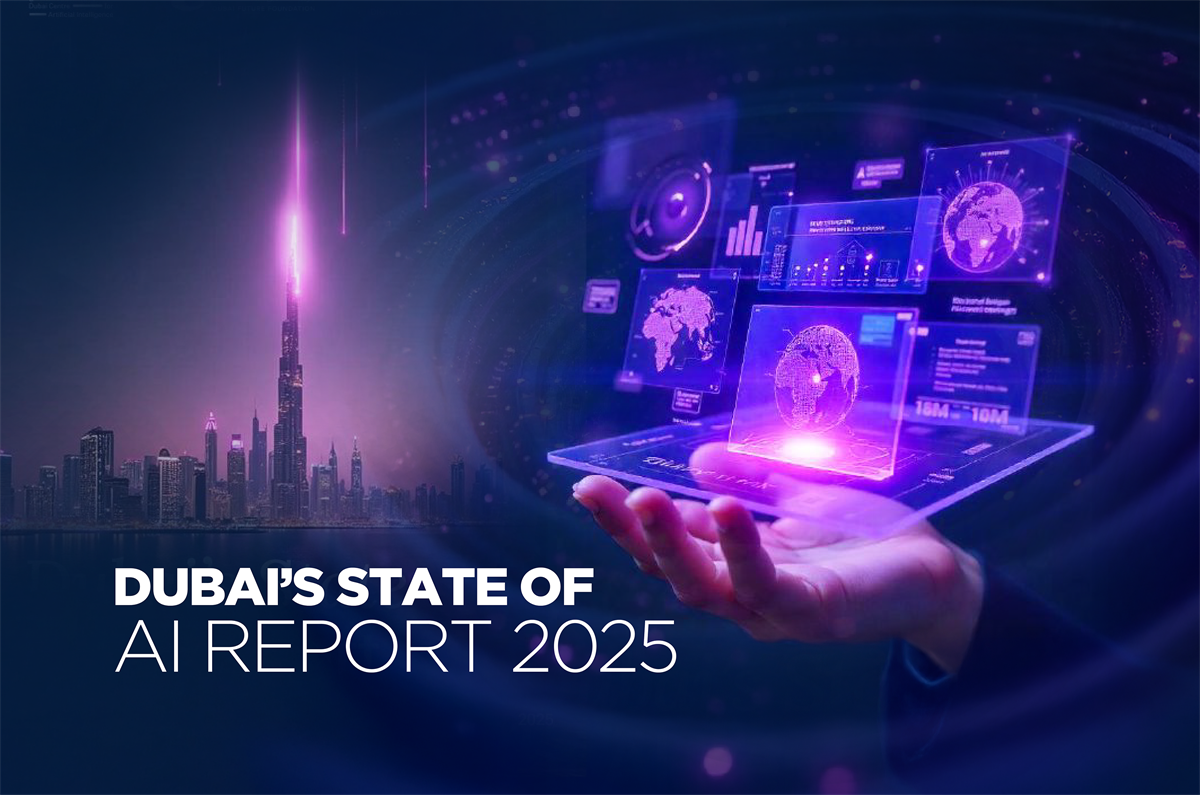Digital Dubai and Dubai Future Foundation today unveiled the inaugural Dubai State of AI Report—a strategic publication highlighting the emirate’s accelerating adoption of artificial intelligence (AI) across government operations. The launch coincides with the official rollout of Dubai’s AI Policy for Government Entities, both announced during Digital Dubai’s participation in Dubai AI Week via a dedicated exhibition.
This edition of the report offers a comprehensive view of AI’s role in transforming government services in Dubai. The report assessed over 100 high-impact, high-return AI use cases, either already deployed or in development across the city. These span critical sectors such as urban planning, healthcare, finance, mobility, procurement, hiring, compliance, and strategic decision-making. While the report features a curated selection of these use cases, the broader findings underscore the depth and maturity of Dubai’s AI-driven transformation, and its global leadership in applied AI for government.
The AI Policy introduced alongside the report is a direct outcome of commitments made during the AI Retreat at Dubai AI Week 2024, where the government pledged to establish a unified framework for ethical, scalable, and transparent AI deployment across all government entities. The policy now provides that foundation—emphasizing explainability, interoperability, human-centricity, and proactive governance—positioning Dubai as a regional benchmark for responsible AI implementation.
H.E. Omar Sultan Al Olama, UAE Minister of State for Artificial Intelligence, Digital Economy and Remote Work Applications, praised the initiative, stating: "Dubai, through its pioneering efforts, is setting new global standards for the ethical and impactful integration of artificial intelligence. By embedding AI across key sectors with a clear, human-centric vision, Dubai is positioning itself as a global leader in responsible innovation and future-focused governance.”
H.E. Hamad Obaid Al Mansoori, Director General of Digital Dubai, commented:
"Artificial intelligence is not a future concept—it is an everyday force powering our decision-making, transforming our services, and enabling a proactive, personalized, and predictive government. With this report and policy, we are institutionalizing a model of AI that is human-centric, efficient, and future-ready."
H.E. Khalfan Belhoul, CEO of Dubai Future Foundation, noted:
"AI is redefining the role of government—not only in service delivery but in foresight, innovation, and global leadership. This report captures that transformation and signals Dubai’s readiness to scale and sustain its AI momentum across all sectors. It also indicates Dubai’s strengthened global position as a pioneering hub for responsible and future-ready AI deployment.”
The Dubai State of AI Report is the first in a series of strategic publications and offers an in-depth look at how AI is being deployed today—from predictive healthcare and digital twins for urban mobility to automated business licensing, fraud detection, and AI-powered procurement and auditing platforms. Many of these use cases are already operational and delivering measurable outcomes. Internal estimates and proportional economic modelling suggest that by 2030, AI implementation could contribute a cumulative amount of over AED 235 billion in projected economic impact, reinforcing Dubai’s position as a key driver of digital economic transformation in the UAE, and supporting the national goal of AI contributing up to 14% of the country’s GDP by the end of the decade.
The report also highlights how AI is enhancing social well-being by enabling earlier disease detection, more responsive emergency services, personalized citizen engagement, and proactive public health planning. As a result, residents benefit from shorter service delivery times, improved safety, and better access to critical government services—reinforcing Dubai’s strategic goal of becoming the most citizen-centric digital city in the world.
Digital Dubai’s exhibition at Dubai AI Week offers visitors hands-on demonstrations of these innovations, showcasing how government entities are leveraging AI to deliver faster, smarter, and more reliable government services. Featured displays include intelligent hiring platforms, strategic planning tools, and dynamic resource optimization models—each designed to scale in line with Dubai’s broader digital transformation agenda.
The report concludes with bold proposals outlining Dubai’s vision for the future of artificial intelligence through 2035. This vision includes citywide predictive government services, agile AI governance aligned with global standards, data as a core driver of competitiveness, affordable access to high-performance computing, carbon-conscious digital infrastructure, and a fully integrated AI research and innovation ecosystem—powered by strong government-private partnerships and sustained international collaboration.
As Dubai advances, the Dubai State of AI Report and AI Policy collectively mark a new chapter in the emirate’s journey—shifting from strategy to structured, measurable, and responsible implementation.




